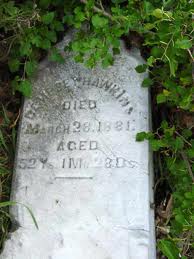Letter from Prison by Dempsey Hawkins
Rehabilitation. Deterrence. Retribution. The words reverberate throughout every criminal courtroom in America the moment the judge strikes his or her gravel. Three words with which I have become quite familiar during my imprisonment. While the justice system once held fast to the faith in rehabilitation, tough on crime political agendas intersected with the wasting winds of 9/11 and blew the ideal to the wayside. Sent it to rest in a judicial junkyard of disused concepts. Of course deterrence still holds sway within the judiciary but it’s a secondary thought, a marginal consideration loitering behind the determined stride of retribution.
I was adjudicated in 1978 for the crime of murder committed in 1976. I was 16 and senseless. Yet belief in my eventual rehabilitation factored in the 6-18 plea bargain I was offered soon after my arrest and I just as soon declined because I lacked the courage and decency to confess with an apology that may not have consoled but would have resonated louder than silence. Consequently, I received a 22-life sentence follwing a trial.
Time passed and I matured from irrational adolescent to sensible adult. Neural stimuli and electrical impulse sparked the cognitive development that set the contours of character. I transformed the way H.G. Well’s invisible man does after he gets shot and lay dying. With death approaching, life ignites one last time as the viscera, skeleton, and skin imperceptibly appear, until the scientist lay restored in body and mind long enough to rue the experiment that occasioned the madness and drew the end. Having died to life in prison, I gradually experienced a rebirth and became the person I wish I had been before the onset of delusion led me to the abyss.
Rehabilitation worked the way my adjudicating court believed it could but I had left the court system long ago and was about to enter the parole system. Leniency was out of the picture and retribution was coming into focus. Fine tuned by the hand of a parole board that brings its brand of adjudication to prisons in the manner that Mississippi’s traveling electric chair brought its concept of justice to towns in the 1940s. In the past as in the present there is a thin line between retribution and annihilation and race often obscures the boundary.
I submitted my first application for parole in March 2000 and felt that my exemplary prison record and order of deportation to Britain would result in release. Additionally, my case is one of youth and emotion and the trouble presented by both. A fact I thought parole officials would consider along with letters of support and records of achievement verifying an elevation of character and perspective. Certainly 22 years in maximum security prison had satisfied the interest of justice. Yet my application then as now was rubber-stamped NO PAROLE with ink that appeared to glow like neon.
I had been naïve to the punitive nature of America’s criminal justice system in general and the Old Testament retribution wielded by New York’s parole board in particular. An image of my youth had become the focal point of revenge. I was trapped in the amber of adolescence. Adulthood had been erased, discredited, subsumed by the past and consigned to yesteryear. While the vengeance sustaining my imprisonment is an empty imperative, I understand that reason can no more placate revenge than remorse.
If I put my ear close enough to one of those rejected parole applications I can hear a phone ringing. The telephone in mind sat on an end table in the living room of my father’s house in Southern Illinois. I had gone to live there in early 1977. Thought I could board a plane and fly above and beyond the destruction I had wrought. Distance myself from ruin. The self ultimately trying to escape the self. In the small town of Joppa I enrolled in high school, made new friends, and sought to disappear amid grazing cows, crowing roosters, and old gray barns sitting weathered and enduring in their alliance with earth and sky. Tried hard to settle in that verdant town but the effort was futile. I had inadvertently self-exiled from the human community with no way back.
On a Sunday afternoon in March 1978 the phone rang. I walked into the living room and picked up the receiver and heard my mother’s voice. She had called to tell me the police were questioning my friends about a murder and asked if I had anything to do with the crime. My heart raced as I said no. We spoke a while longer before I replaced the receiver with a wet hand. I stood and stared out the window while the distress in my mother’s voice lingered in my ear like the immensity of the sea booming in the hollow of a shell.
I continued gazing out the window until I saw a day when my friends and I were in the back of a furniture store in the Staten Island Mall, sunk low in recliners with only our sneakers visible on the raised footrests. We were talking a mile a minute and laughing our heads off because we were young and silly and as carefree as bluebirds in spring. I desperately tried to comprehend how I had lost that day and found the one in which I stood immobilized by guilt and wildly wishing I could resurrect life through the alchemy of fear and regret. The house was quiet save the languid tick tick tick of the wall clock suspending, bending, extending time forward and backward, illuminating the past and compromising my ability to think in the present. The day had faded into dusk, faded into bruised layers of twilight, faded into lament. Many years later I read a poem by Wordsworth that spoke to that day of all days.
Action is transitory, – a step, a blow
The motion of a muscle – this way or
That—
‘Tis done, and in the after vacancy
We wonder at ourselves like men betrayed:
Suffering is permanent, obscure and dark,
And shares the nature of infinity.
The words form the narrative of a tragedy and sorrow I can never quite articulate despite the endless possibilities for expression. I imagine judges also find it difficult at times to adequately convey thought and sentiment in those moments before they strike their gavels and bring finality to crimes and actions with unbound dimensions.
Dempsey Hawkins 79B0609
Mt. McGregor Correctional Facility
1000 Mt. McGregor Rd., Box 2071
Wilton, New York 12831

 Jumel Terrace B&B
Jumel Terrace B&B Life Turns Man Up & Down
Life Turns Man Up & Down The Private Library
The Private Library
Comments
Custoias One Response to “Letter from Prison by Dempsey Hawkins”Trackbacks
Check out what others are saying...[…] see: Letter from Prison: Redemption. Rehabilitation. Deterrence. by Dempsey […]